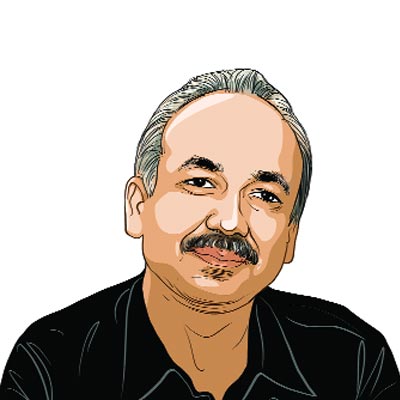Opinion Change of inns
China draws thick red lines for Kathmandu
The week-long visit of the 21-member Chinese delegation led by He Yong,member of the central secretariat of the Communist Party of China (CPC),was significant in many ways,even its outward appearance. It was extravagant by normal Chinese standards,because the delegation the 21st to visit Nepal after it was declared a republic in May 2008 was the first to bring its own aircraft,a practice followed only during state visits. And there were far more loaded political messages delivered by the group,through words and actions.
In the past,Chinese delegations would normally stay at Hotel Hyatt Regency in the Bouddha area,about 2 km away from the international airport. But the Chinese embassy informed Nepals foreign ministry that this time,the delegation would prefer to stay at Hotel Soaltee,far away from Bouddha. The reason given was that Bouddha is dominated by Free Tibet activists who might target the delegation if they stayed in the area. This was perhaps a rejection of the oft-reiterated plea advanced by the Nepal government that it would not allow its territory to be used against our friend in the north.
Yong,who commands the position of a vice premier,told President Rambaran Yadav and caretaker Prime Minister Madhav Kumar Nepal that while China has always appreciated Nepals consistent support for its One China Policy,its gestures on Tibet affairs have to be matched by action. In fact,China has been quite aggressive and blunt in its protest against what it says is increased Free Tibet activity in Nepal,aided and abetted by outside forces,especially after 2006. Its message was clear: the political dispensation consisting of the Unified Communist Party of Nepal-Maoists (UCPN-M) and seven pro-democracy parties brought together with Indias mediation and initiative was not doing enough to address Chinas concerns,unlike the monarchy.
While Yongs delegation was still in town,Beijing dispatched another 46-member delegation to Kathmandu to promote trade and business and identify areas where China could be of help. The Yong team,which also met Maoist leader Prachanda,made no effort to conceal its unhappiness over the increased role of India and the European Union. Nepal must be able to solve its problems on its own without outside interference,and China takes every such interference seriously, he said during his meetings with the president,prime minister and the Maoist leader. In other words,he conveyed to Nepal that if the necessity arose,China would feel free to interfere in the manner of the rest,or in its own way. Next-door Nepal,more than any other country in South Asia where Chinas interest and involvement are increasing by the day,clearly falls under its sphere of influence.
Yongs visit had been planned much earlier,but took place at a time when Nepals parliament had failed to elect a prime minister in seven serial contests,and non-Maoist parties and parliament intensely debated the contents of an audio-tape,purported to be a conversation between the UCPN-M foreign affairs cell chief,K.B. Mahara,and an unidentified Chinese official,with the former demanding Rs 500 million to buy off parliamentarians to form a government under Prachanda. The matter did not figure during the high-level meetings with the Yong delegation,but even Madhav Nepal said the Maoists were bringing shame to the nation by indulging in political horse-trading. He also said the audio scandal needed to be probed.
Despite his communist background,Madhav Nepal had openly criticised China when it supplied arms to the royal government after India and the European countries had stopped as a protest against the takeover by King Gyanendra in February 2005. His threat to order a probe into the Mahara tape episode when the Chinese delegation was still in the country was perhaps not intended. But the Nepali authorities believe that Chinas role in ensuring peace and stability in Nepal has increased manifold,and that Nepal must take both India and China the two neighbours into confidence on this count. In fact,many believe the failure of Indias post-monarchy Nepal policy has contributed to and legitimised Chinas larger presence in Nepal. A year ago,the Chinese authorities in Kathmandu forced President Yadav to cancel a visit to a monastery in Bouddha to inaugurate the centenary celebration of a revered Buddhist monk,just an hour before his scheduled arrival,asserting that his presence there would be taken as aiding and abetting anti-Chinese activities. The Chinese delegations refusal to stay at a hotel less than a kilometre away from the monastery should be seen as an unprecedented level of intolerance towards the perceived threat.
President Yadav is to visit China on October 13,not on a state visit,but to attend the Shanghai Expo. However,it would be an occasion for him to assure the Chinese authorities that no matter what the EU policy on Tibet may be,Nepals territory would be closed for them,as in the past. But clearly,the Chinese are now dictating exactly how Nepal can back up its assertions with action.
yubaraj.ghimire@expressindia.com





